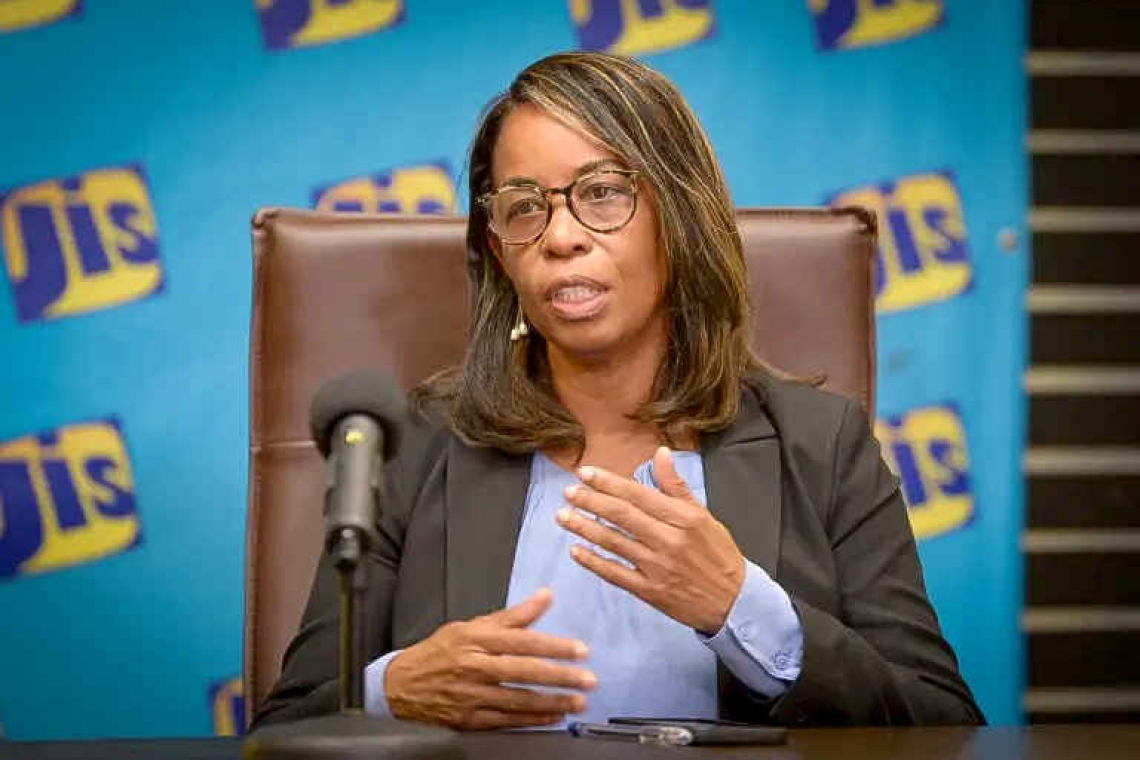CTD for Development Planning, Environment Policy and Management in the Ministry of Economic Growth and Job Creation Gillian Guthrie.
KINGSTON, Jamaica--As the world moves closer to establishing a legally binding international agreement on plastic pollution, Jamaica is reaffirming its commitment to push for a full life-cycle approach to plastics during upcoming negotiations in Geneva, Switzerland, this August.
Chief Technical Director (CTD) for Development Planning, Environment Policy and Management in the Ministry of Economic Growth and Job Creation, Gillian Guthrie, highlighted Jamaica’s active involvement in global efforts to tackle the plastic crisis, during a recent Jamaica Information Service (JIS) Think Tank.
“Although Jamaica has instituted a ban on specific types of plastic products, globally there’s a move to negotiate a new international legally binding instrument to address plastic pollution, including in the marine environment,” she informed.
“This started with Resolution 5/14 from the United Nations Environment Assembly (UNEA-5), which is the governing body for the United Nations Environment Programme (UNEP), and we were set a task to negotiate a new instrument and have that negotiation completed at the end of 2024 in Busan, Korea,” Guthrie said.
Despite this new instrument being developed to cover the full life cycle of plastics, from production design to disposal, Guthrie pointed out that “unfortunately, we were unable to conclude the negotiations at the end of December 2024, so we are reconvening in Geneva, Switzerland in August 2025, to hopefully conclude the negotiations and have a new internationally legally binding instrument to address the full life cycle of plastics”.
Guthrie underscored that Jamaica, as a net importer and consumer of plastic products, must advocate for stronger international cooperation to mitigate the domestic burden of plastic waste.
“For Jamaica, as net consumers of plastics, we are more interested in the full life cycle. If it is that we don’t get that cooperation at the global level, then plastics, which is a very cheap product, will continue to come into our island, and even though we have a ban, it will now put an additional burden on our regulators to monitor the ports, and all the supermarkets and retail establishments to reduce plastics,” she said.
Guthrie also noted that achieving consensus has been challenging, particularly with countries that produce fossil fuels.
“Plastics are also linked to fossil fuel production, and so when we talk about plastics, we also talk about climate change and greenhouse gas emissions and there are some countries …who are not necessarily in support of us looking at the full life cycle of plastics,” she said.
Despite the challenges, Jamaica remains steadfast in its goal to secure a treaty that addresses not only waste management but also plastic production and upstream interventions.
“We believe it is important that we have a global approach to this issue of dealing with plastics, especially single-use and what we call problematic plastics, especially because alternatives are available,” Guthrie emphasised.
As Jamaica approaches the next round of negotiations, the government continues to position itself as a firm advocate for environmental sustainability, public health protection and climate resilience. ~ Jamaica Observer ~







